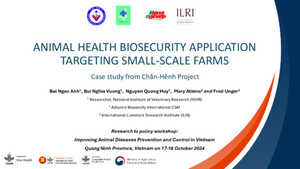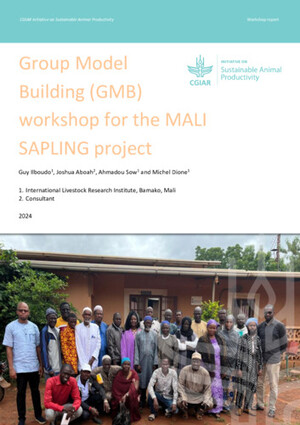
Detection of Erysipelothrix rhusiopathiae in naturally infected pigs in Kamuli District, Uganda
Abstract
Swine erysipelas is an economically significant disease affecting all stages of pork production. The biggest losses may occur in growers-finishers because of sudden death or acute septicemia. Survivors often suffer from chronic lameness, arthritis and endocarditis leading to poor body growth. The causative agent is the ubiquitous bacterium Erysipelothrix (E.) rhusiopathiae, which is also able to enter the skin of people handling infected animals and meat and cause infection. In order to show the presence of E. rhusiopathiae in pigs, serum samples from 426 randomly selected pigs were collected in four subcounties (Bugulumbya, Butansi, Kitayunwa and Namwendwa) in Kamuli District in Uganda, as part of a multipathogen survey conducted by the International Livestock Research Institute in 2013. Subsequently, 100 samples of fresh pork were collected from all 67-pork slaughterhouses operating in the same subcounties for isolation and bacterial culture. Overall, 308/460 (67%) of the pig sera carried antibodies against E. rhusiopathiae and 45/100 (45%) of the fresh pork samples were contaminated with E. rhusiopathiae. This is the first ever report of E. rhusiopathiae in pigs and pork in Uganda.
Citation
Musewa, A., Roesel, K., Grace, D., Dione, M. and Erume, J. 2018. Detection of Erysipelothrix rhusiopathiae in naturally infected pigs in Kamuli District, Uganda. Revue d’élevage et de médecine vétérinaire des pays tropicaux 71(1–2): 31229.










